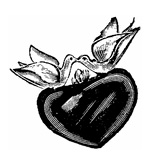
In Defense of Jacob
A MARTYR OF POLYGAMY
Dr. Michael Healy, in his letter to the editor “How Do I Love Thee?” (Jan.-Feb.), questions my glorification of Jacob as a great lover in my article “Unity & Procreation: Which Has Ontological Priority?” (Sept. 2013), and points out my failure to examine whether this claim is compatible with Jacob having fathered sons from four different women. He is fully justified in doing so. My key concern in that article was to highlight two truths to which Jacob’s love for Rachel gives lasting expression: (1) Jacob’s willingness to suffer in order to obtain Rachel’s hand in marriage illustrates the deep link between love and sacrifice; (2) Jacob’s steadfast love for Rachel even during her difficult infertile years underscores the clear priority the intentio unionis has over procreation in the marital embrace, though there is an essential link between the two.
Nevertheless, I am indebted to Dr. Healy for giving me a chance to address the question: Is not marriage essentially linked to monogamy? I now intend to do some repair work.
Let us take a step back. As beautiful as the marriage of our first parents was before the Fall, since the coming of Christ “all things have been made new,” and marriage, elevated to the dignity of a sacrament, has been given a dimension of greatness and sublimity that transcends what Adam and Eve could possibly have experienced. The Offertory of the Tridentine Latin Mass expresses this truth thus: “O God, who in a wonderful manner didst create and ennoble human nature and still more wonderfully renewed it….”
After the Fall, man’s vision of certain truths that were luminous before our first parents sinned became obscured. Should we be surprised that Adam and Eve sinned together? Or that the sacredness of the bond God had created between them should have been severely affected?
You May Also Enjoy
Dorothy Day often quoted St. Catherine of Siena, emphasizing one particular saying of hers: “All the way to heaven is heaven because He said ‘I am the Way.’”
That our Lord meant to speak of riches as being in some sense a calamity to the Christian is plain from His praises and recommendation of poverty.
The Bible has become a hot property in recent years. There is no end of…

